Connecting Climate Knowledge One Case at a Time: The CART and South Central CASC Internship Program
From the summer of 2023 through 2025, we hosted Conservation Adaptation Resources Toolbox (CART) Interns. During this internship, students produce synthesis work on various topics. Now we’re sharing it with you to provide more usable science!
Grassland Habitat Monitoring for Wintering Chestnut-collard Longspur
By: Halyee Kraker, 2023-24 CART Intern
The steep population decline of the Chestnut-collard Longspurs (CCLO) is a result of habitat loss in their wintering habitat in the Southwestern United States and North Central Mexico. Click on the links below to learn more about this project.
Story Map
Summary Handout
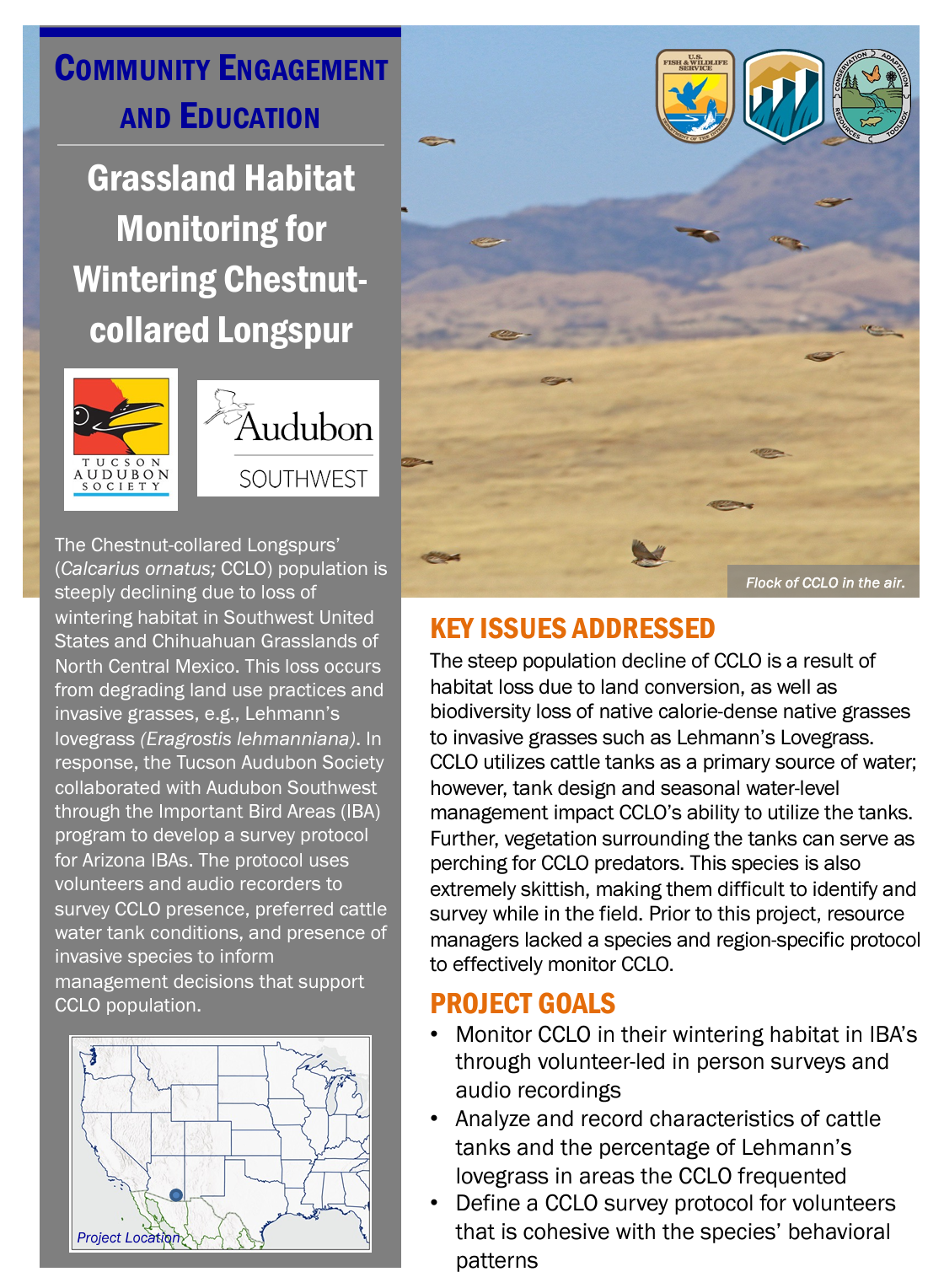
Shrub Control to Restore a Coastal Prairie Ecosystem
By: Jack Carter, 2023-24 CART Intern
Restoring coastal prairie ecosystems is beneficial for multiple species and protects inland areas against storm surge and accelerated soil erosion. This project looked at combinations of shrub removal techniques to restore coastal prairie land most efficiently. Click on the links below to learn more about this project.
Story Map
Summary Handout
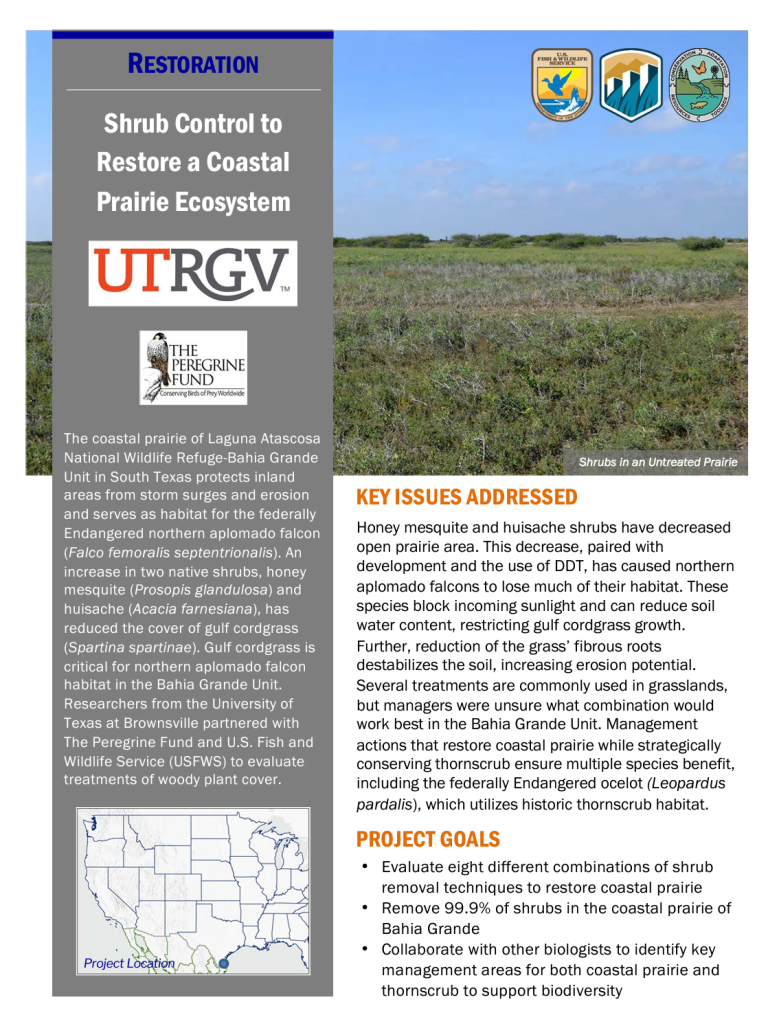
Rivercane Recovery to Support Tribal Cultural Practices
By: Liam Thompson, 2023-24 CART Intern
Rivercane is one of many cultural keystone species. This project aimed to collaborate with Tribal Nations to support rivercane recovery and create a forum to increase knowledge sharing around rivercane recovery efforts through education with Federal agencies and other land managers highlighting the ecological and cultural benefits of rivercane in the southeastern US.
Story Map
Summary Handout
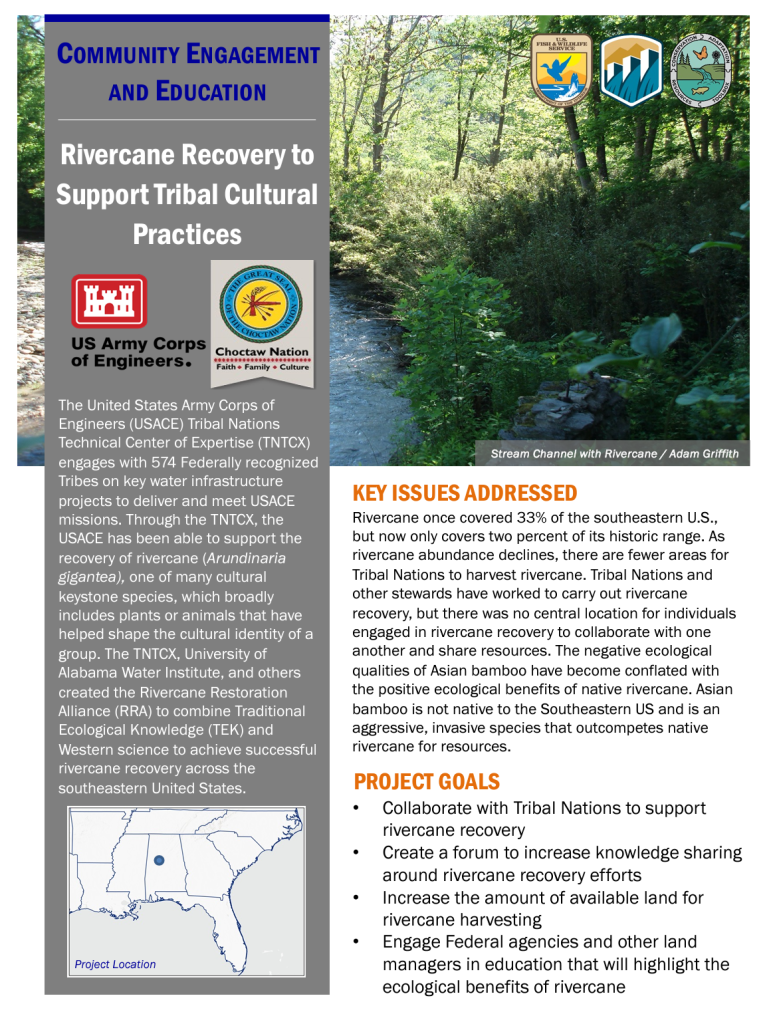
Mapping the Urban Heat Island in Oklahoma City
By: Jack Carter, 2023-24 CART Intern
Urban Heat Islands (UHIs) are urban areas that are warmer than surrounding rural areas. Hight temperatures and poor air quality are urban phenomenon that poses a threat to human health. Click on the links below to learn more about this UHI mapping campaign and next steps to help the community increase resilience to these impacts in the future.
Story Map
Summary Handout
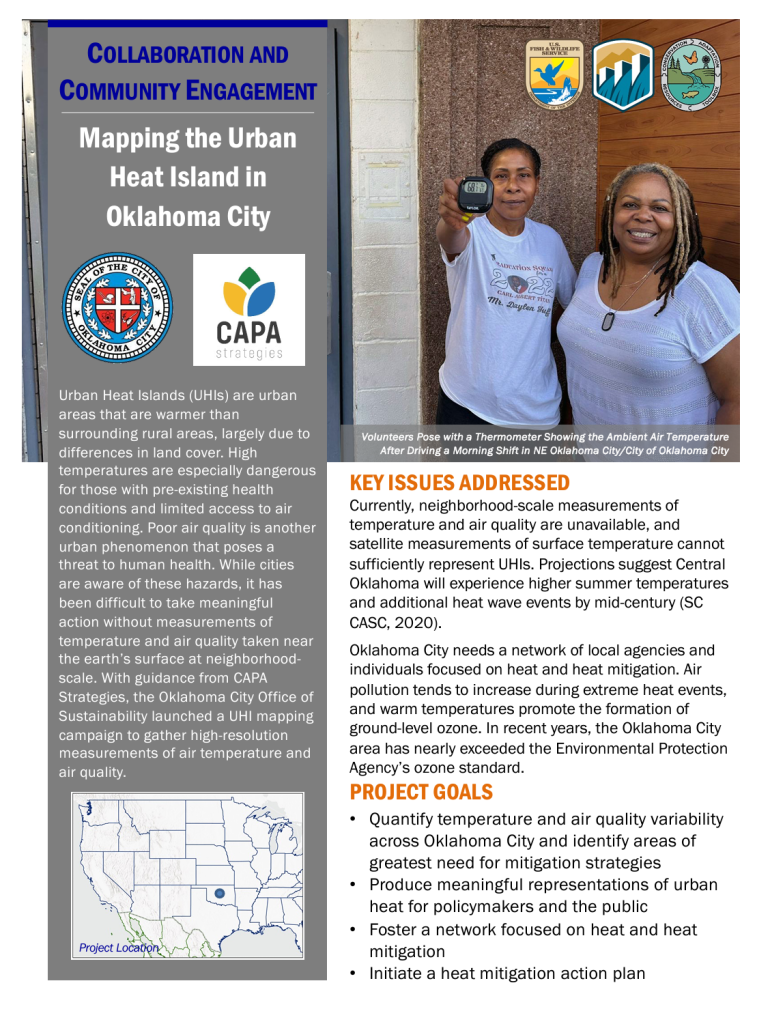
Cultivating Agave Using Regenerative and Indigenous Methods
By: Jack Carter, 2023-24 CART Intern
Long-term drought in the southwestern US has made water conservation more important than ever. This project looked at elevating Indigenous Knowledge and educating produces on native plants and the value of sustainable production systems. Click on the links below to learn more.
Story Map
Summary Handout
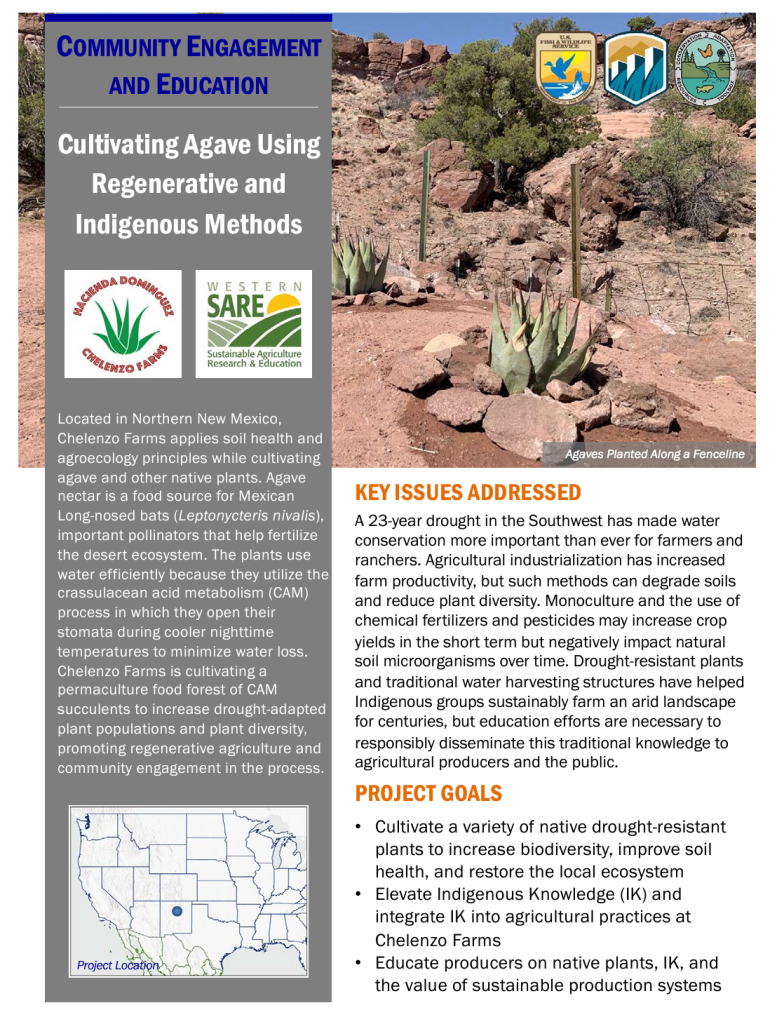
Mapping Climate Change Impacts and Traditional Ecological Knowledge for Potential Mitigation and Adaptation Strategies
By: Halyee Kraker, 2023-24 CART Intern
Coastal Louisiana experiences land subsidence, rising sea levels, and saltwater intrusion due to many factors. This project worked to combine Tribal knowledge with Western scientific data to build a decision-support tool to allow the PACIT Tribe to better understand impacts in their ecosystem and prioritize their responses. Click on the links below to learn more.
Case Study
Summary Handout
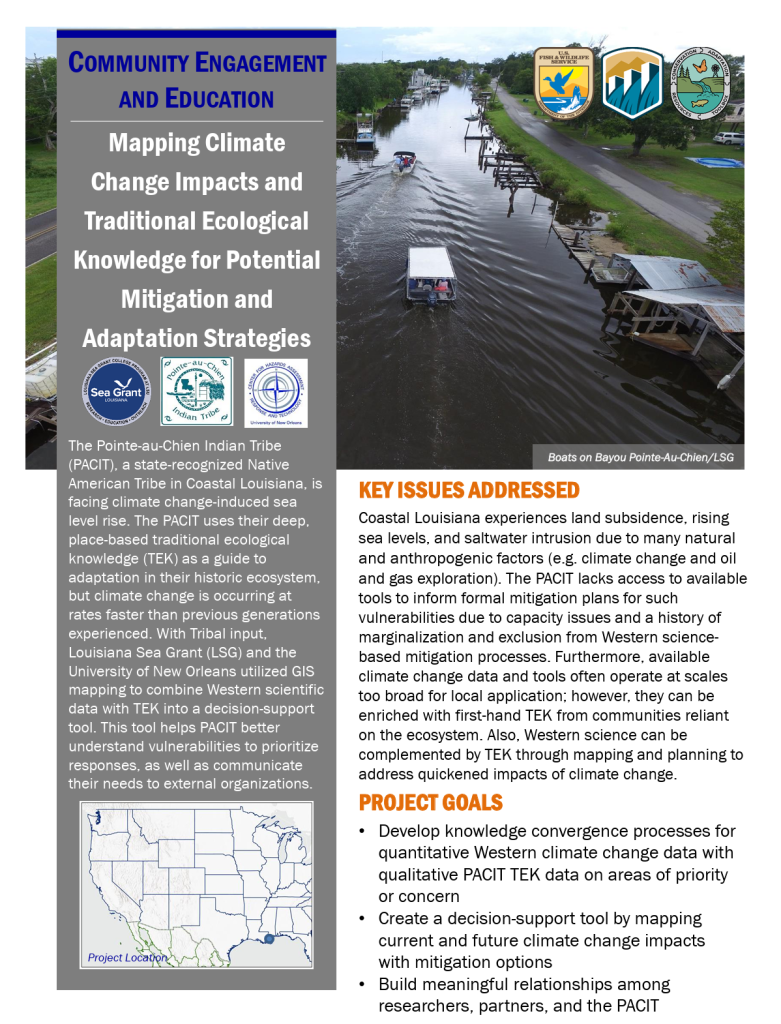
Climate Modeling and Partnerships for Freshwater Mussel Conservation in Central Texas
By: Halyee Kraker, 2023-24 CART Intern
Freshwater mussels are crucial for riverine ecosystems, but are facing population declines due to various threats, including climate change. Click on the links below to learn more about groups in central Texas who are working to better conserve these species.
Case Study
Summary Handout
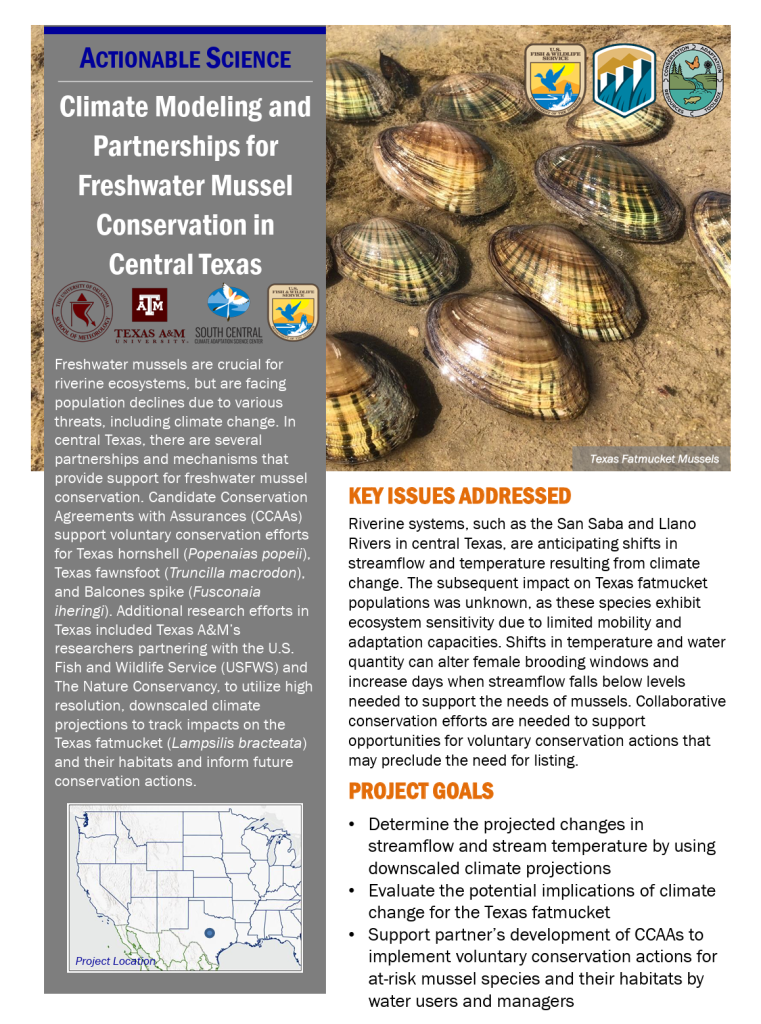
Wood for Life, a Collaborative Partnership to Provide Wood to the Navajo Nation and Hopi Tribe
By: Liam Thompson, 2023-24 CART Intern
Unmarketable wood from forest thinning projects is typically burned, but the windows for safe burning have shortened. This project sought to remove thinned wood from projects to reduce risk of futures wildfire, while finding policy solutions to supply wood to Navajo Nation and Hopi Tribe for fuel, ceremonial, and housing needs.
Case Study
Summary Handout
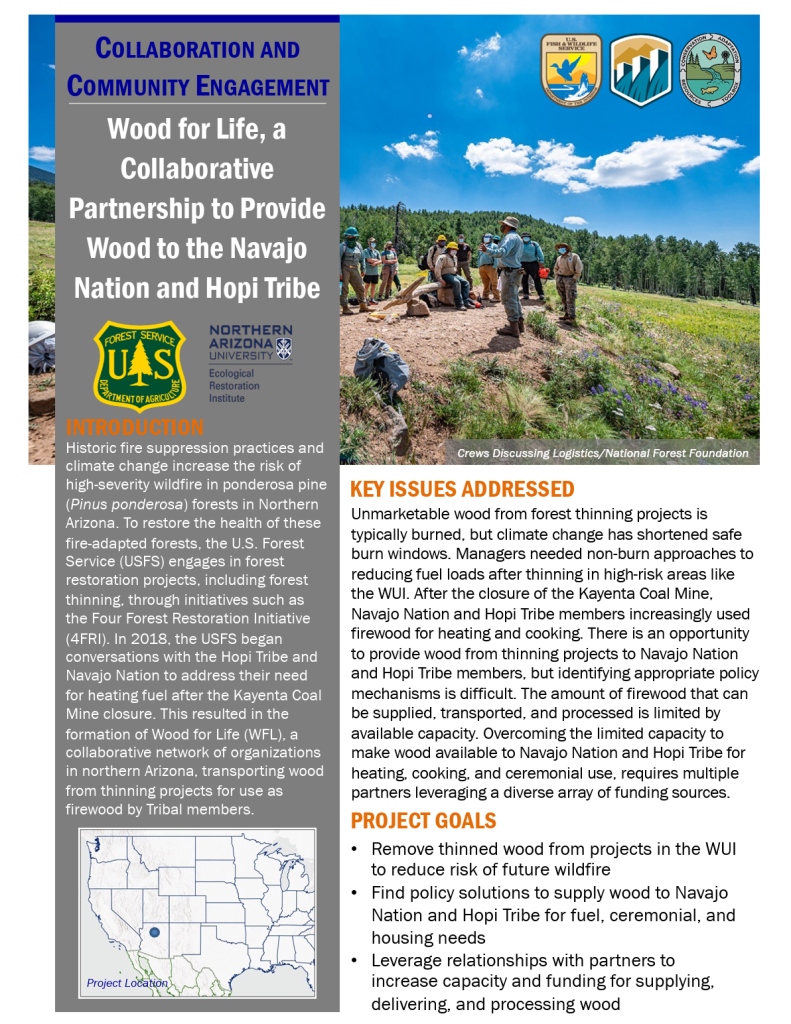
Balancing Water Usage and Ecosystem Outcomes Under Drought and Climate Change Conditions
By: Jack Carter and Haylee Kraker, 2023-24 CART Interns
Water availability and usage in the Red River Basin is being impacted by climate change. This project looked at fish species’ distributions in future climate scenarios, water managers’ attitudes toward environmental flows, and sought to identify prime conservations resource investment areas to maximize benefits for fish species.
Case Study
Summary Handout
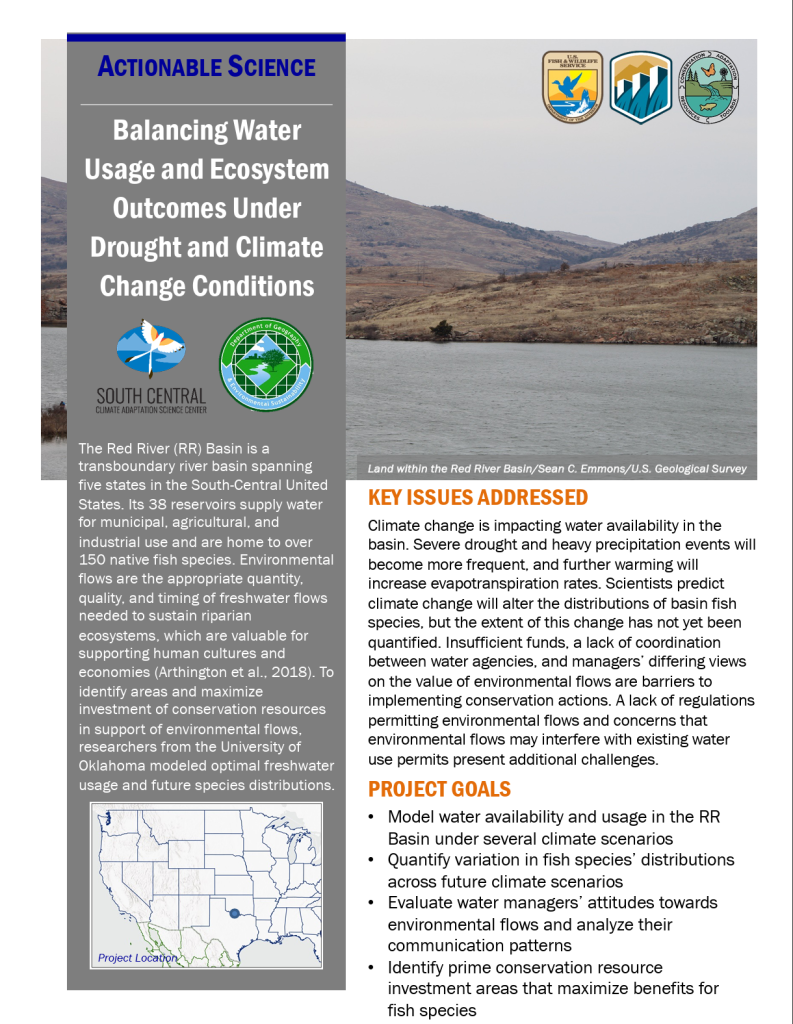
Management Strategy Development for Southern Great Plains Wetlands and Migratory Shorebirds in a Changing Climate
By: Jessica Zimmerman, 2024-25 CART Intern
Wetlands across North America’s Southern Great Plains (SGP) serve as transitions between terrestrial and aquatic environments, providing ecosystem services and habitats for water-dependent species. Many SGP wetlands depend on precipitation runoff as their main water source, so the region’s most common climate change impacts such as droughts, heatwaves, and unpredictable precipitation great affect wetland inundation periods.
Case Study
Summary Handout
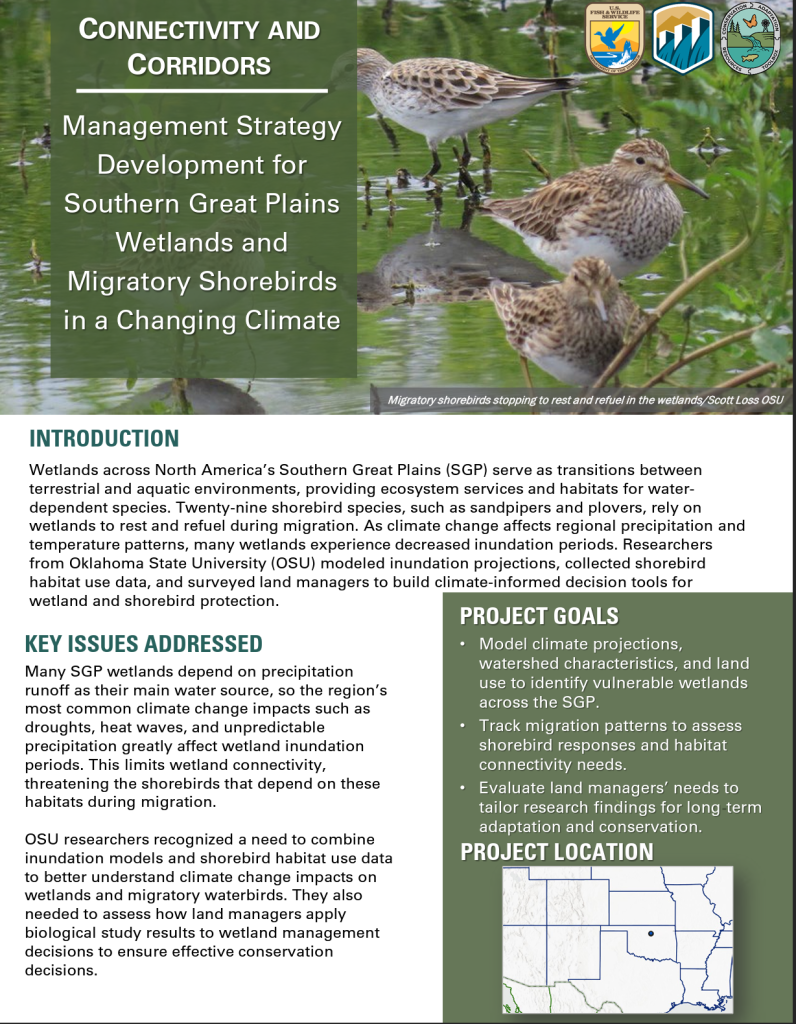
Climate Change and Adaptation Training Series for Grassland Conservation Practitioners
By: Richard Cavaliero, 2024-25 CART Intern
Human activity has dramatically reduced the historical expanse of North American Grasslands. Climate change is projected to hasten this decline and amplify existing stressors. Many grassland managers have recieved little to no formal climate change education. To improve climate literacy and provide guidance in creating adaptation strategies, multiple Climate Adaptation Science Centers and the U.S. Fish and Wildlife Service co-developed Climate Change and Climate Adaptation Training for Grassland Conservation Practitioners.
Case Study
Summary Handout
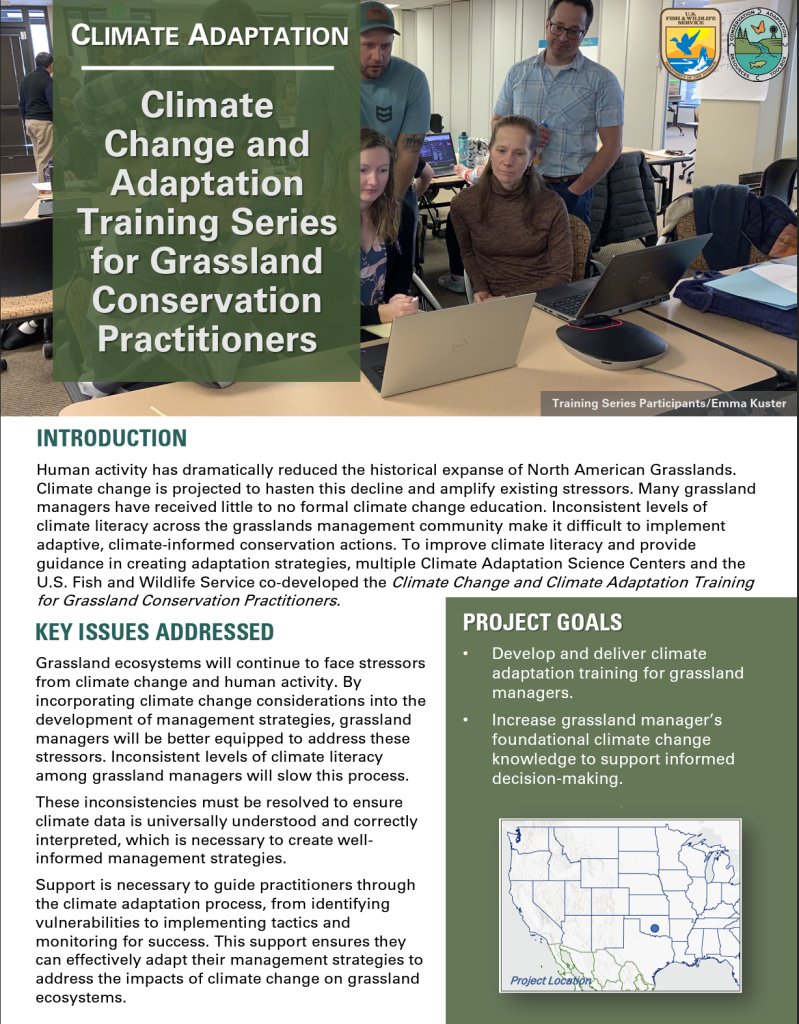
Using Regional Soil Moisture to Map Wildlife Probability
By: Liam Thompson, 2023-24 CART Intern
Soil moisture is an important indicator of wildlife probability, which is also driven by climate, fuel, ignition, and topography. Existing wildfire danger indices to no incorporate measured soil moisture data despite research indicating that soil moisture data could improve wildfire danger assessment. Researchers are improving the soil moisture modeling capabilities of the Newhall Simulation Model to improve the prediction of wildfire probability in the Red River and Rio Grande watersheds.
Case Study
Summary Handout
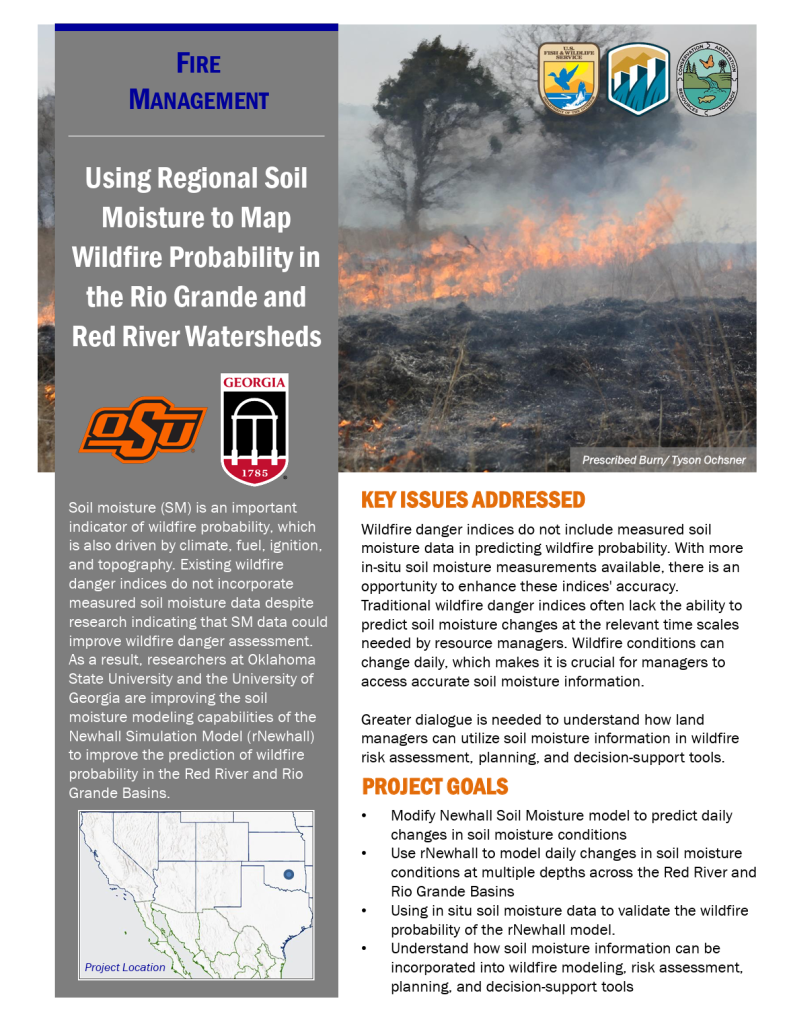
History of the CART program at the South Central CASC
In 2023 the partnership already established between the U.S. Fish and Wildlife Service (FWS) and the South Central Climate Adaptation Science Center (CASC) expanded when we worked to host student interns with the CART (Conservation and Adaptation Resources Toolbox) program to produce synthesized information on topics of interest related to resource manager’s needs in our region.
CART is a platform that enhances collaborative conservation efforts at all scales by facilitating issue-based, not geography-based, peer-to-peer knowledge sharing. By connecting hundreds of individuals from dozens of organizations across North America, CART helps bridge the gaps between work at project, landscape, and operational scales.
The South Central CASC has several groups focused on resource manager needs across the region. This research project will leverage the expertise of these existing groups to enhance the content available through the Conservation and Adaptation Resources Toolbox (CART) as identified through the partnership between the South Central CASC, U.S. FWS, U.S. Bureau of Reclamation, and other relevant Federal agencies, state agencies, Tribes, and non-profits. The research team will build upon the CART and South Central CASC missions by making the most advanced climate data, tools, and adaptation strategies available and accessible to resource managers.
We aim to share these resources with our partners and anyone else in our region who is seeking information on these topics. The topics vary from specific species to ecosystems and habitats, to cultural practices, and other areas that fall into the useful and actionable science categories we strive to produce as a center.